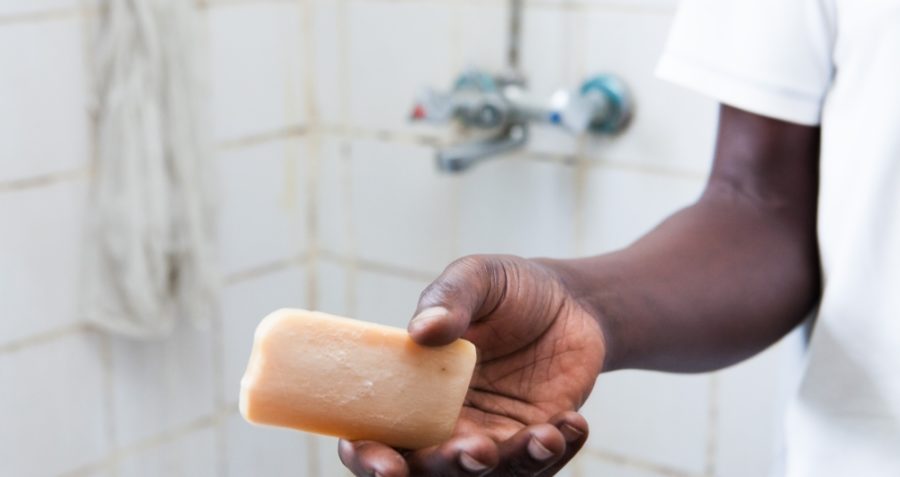How HIV activists in Kenya, Uganda and Indonesia are responding to COVID-19
 © Gemma Taylor for Frontline AIDS
© Gemma Taylor for Frontline AIDS
HIV activists are showing dedication, energy, intelligence and cohesion to ensure marginalised communities are not forgotten during the COVID-19 lockdown.
All health and political agendas are turned to COVID-19, parliaments are shut and inaccessible, and justice courts are closed. But those involved in the Partnership to Inspire Transform and Connect the HIV response (PITCH) are rapidly adapting their advocacy work, using their skills, experience, contacts and unity to deliver clear, consistent and common messages about what those living with, and vulnerable to, HIV need during the current crisis.
Everyday, PITCH advocates are navigating politics and bureaucracy, using social media, grasping influence opportunities, and maintaining their flourishing networks to speak as one – and they are getting results.
Keeping HIV on the agenda
In the last four years PITCH partners have patiently and proactively built institutional and personal relationships with health ministries, parliaments, presidential cabinets, UNAIDS and the Global Fund. They are now utilising these relationships to great effect.
A few hours after their countries locked down, PITCH partners contacted high-level officials to ensure the HIV response figured in national and regional COVID-19 strategies.
Straight away, PITCH representatives in Kenya, Indonesia and Uganda contacted national COVID-19 taskforces where they have been advocating for information and support for marginalised people, particularly in regards to sexual and reproductive health and rights and HIV services.
Governments have responded extremely quickly. In Uganda, after being contacted by PITCH partners in alliance with other health networks, the government issued permits so that key staff could travel to clinics to provide essential care, including HIV services.
Following recommendations from PITCH partners in Indonesia, the government agreed to the emergency release of 30,000 vulnerable prisoners, including people who use drugs, to prevent them and others from getting COVID-19.
In Kenya, Indonesia and Uganda, PITCH partners sit on Global Fund Country Coordinating Mechanisms, and they are now involved in discussions on how best to use diverted Global Fund money to protect vulnerable communities. This includes distributing masks, hand sanitisers and other protective equipment to community-based HIV organisations.
Protecting HIV treatment
In Kenya, PITCH partners have helped to secure a three-month supply of HIV treatment, and will be monitoring the distribution of treatment and other prevention items, such as condoms, during the crisis. Organisations led by people who use drugs are also advocating for take-home methadone and mobile clinic deliveries to help with social distancing.
In Indonesia, PITCH advocates have joined forces with a coalition of community organisations to fight against any misuse and inefficiency surrounding the distribution of HIV treatment during the COVID-19 era.
Serving marginalised people
PITCH partners are continuing to work closely to ensure local stakeholders provide essential services to marginalised communities during lockdown. For instance, in Busia, Uganda youth-led networks are advising districts authorities and health facilities that are now delivering medicine and HIV treatment directly to young people in all their diversity.
People who use drugs are being accused of breaking lockdown rules when they leave drug dens and are being fined by police. So PITCH advocates are encouraging local police and clinics to work with peer outreach workers to ensure access to medicines and clean needles can continue.
In Indonesia and Kenya, diverse PITCH partners are helping to raise awareness of the livelihood issues facing sex workers, including transgender people, who are living with HIV during the crisis. They have created fundraising platforms for individual donors to ensure people from these groups have enough money to avoid homelessness and can eat, and thereby continue taking their HIV treatment.
PITCH partners are also rapidly producing infographics, flyers and posters and using social media to communicate about how to make sex work and drug use as safe as possible during the pandemic. Others are taking to radio and television to provide sexual and reproductive health and rights information in the context of the need for increased hygiene and social distancing. They are also raising awareness about increased risk of gender-based violence.
Defending human rights
We are hearing evidence to suggest COVID-19 is being used to further reduce civil society space. Human rights violations also appear to be increasing, and PITCH partners are using existing monitoring and response systems to keep careful watch on the situation.
Overall, governments and other authorities seem to be aware that they need community-based organisations to respond fully to COVID-19. PITCH advocates have become instrumental in this work by: remaining proactive in decision-making forums; monitoring sexual and reproductive health and HIV services in the COVID-19 response; and holding those in power to account. Hopefully, their efforts will help to ensure years of progress to end AIDS are not lost due to COVID-19.
The Partnership to Inspire, Transform and Connect the HIV response (PITCH) is a joint partnership between Frontline AIDS, Aidsfonds and the Dutch Ministry of Foreign Affairs. Julie Bridger is an Advisor on the programme.
Tags
COVID-19HIV preventionIndonesiaKenyaPITCHUganda

